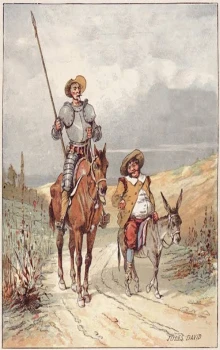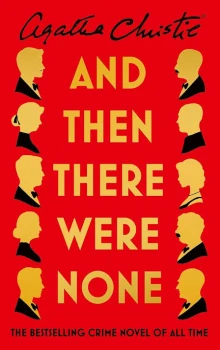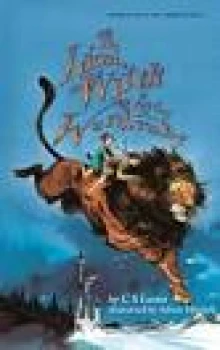INTRODUCTION TO DON QUIXOTE DE LA MANCHA
Don Quixote de La Mancha, a noble and esteemed gentleman, resided in a small village in La Mancha, although its name is not specified. He was a well-educated man with a passion for reading books of chivalry, which consumed most of his time and attention. In his youth, he was an avid sportsman, but as he grew older, his love for books of chivalry surpassed all other pursuits. He spent most of his days and nights reading, and his obsession with them slowly eroded his mental faculties, leading him to lose his grip on reality.
Don Quixote was of a hardy constitution, spare, and gaunt-featured, with a rugged countenance. He was an early riser and a skilled horseman. His age was approaching fifty, and his appearance was somewhat rustic, due to his simple lifestyle and preoccupation with books of chivalry. His surname, according to the accounts of those who have written about him, was either Quixada or Quesada, although the latter name seems more plausible given his connection to the region of La Mancha. However, for the purpose of this narrative, he shall be referred to as Don Quixote of La Mancha, as he chose to style himself.
In his days and nights of reading, Don Quixote became enamored with the tales of knights-errant, and he began to perceive himself as a character from these stories. He thought himself fit to emulate the bravest and most noble knights, and thus, he embarked on a quixotic quest to become a knight-errant, with a helmet, a horse, and a lady to love. His quest was fueled by his imagination, his love for romance, and his desire for adventure.
Don Quixote started by preparing his armor, which had been lying forgotten for ages, for the purpose of cleaning it up he did polish it as best he could but perceived that it had no closed helmet, but only a simple morion. This deficiency was soon replaced with an innovative half-helmet made of pasteboard, which he contrived to improve upon the original. Unfortunately, his ingenuity was put to the test when he accidentally destroyed it, forcing him to start anew, this time adding iron bars to fortify it.
Next, he turned his attention to his hack, which he believed to be a noble horse, despite its poor condition. He spent four days pondering what name to give it, finally settling on the name Rocinante, which he hoped would bode well for his chivalrous adventures.
Additionally, he decided to confer upon himself the title of Don Quixote, reflecting his newfound role as a knight-errant, and thus, his full title became Don Quixote of La Mancha, a name that echoed the legendary tales of his favorite books.
His final act of preparation was to find himself a lady to love, which he believed was essential for a knight-errant. He had his heart set on a beautiful farm-girl named Aldonza Lorenzo from a nearby village, whom he had once known. He decided to confer upon her the title of Lady Dulcinea del Toboso, and thus, the lady who would be the object of his chivalrous affections.
THE MORNING OF HIS DECISION
One morning, Don Quixote awoke with a newfound sense of purpose, ready to embarking on his quixotic quest. He was determined to become a knight-errant, with all its attendant glory, danger, and romance. His imagination was fueled by the tales of chivalry he had read, and he was resolute in his desire to emulate the great knights of old. He took his position proudly, armed with his imperfect armor, his noble horse Rocinante, and his title as Don Quixote of La Mancha. He was ready to face whatever challenges lay ahead, convinced that he was destined for greatness.
With his helmet securely in place, Don Quixote set out into the world, driven by his imagination and his desire for adventure. As he rode through the countryside, he became increasingly enamored with the idea of being a hero, convinced that he was destined for greatness. His reality became clouded by his imagination, making him susceptible to hallucinations and illusions. Despite this, he remained steadfast in his determination, convinced that he was fulfilling his true calling as a knight-errant.





